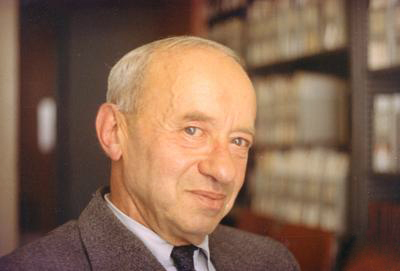Alfred Taitelbaum was born on 14 January 1901 in Warsaw to a family of Jewish industrialists who combined attachment to Jewish religious traditions with assimilation into Polish culture. Already during his gymnasium education, his extraordinary aptitude for science was noted, and his later academic achievements earned him an important position in the history of philosophy.
In 1918, he applied to the Faculty of Philosophy of the University of Warsaw, first in biology and then in philosophy. He became a student of Professor Stanisław Leśniewski, an excellent logician, who discovered his mathematical and logical talent. In 1923, he adopted the surname Tarski and converted to Catholicism, as he considered himself a Pole and remained faithful to Polishness for the rest of his life. In 1926, he became the youngest Associate Professor of Mathematics in Poland and began working at the University of Warsaw.
Already at that time, he developed the so-called semantic conception of truth in several articles and thus secured a lasting contribution to global philosophy. His ideas attracted the interest of philosophical circles, marking the development of philosophy in connection with mathematical-logical analyses and rationality in the field of empirical natural sciences. Tarski encountered the so-called Vienna Circle, which resulted in a visit of the main representative of this milieu, Rudolf Carnap, to Warsaw in 1930. Tarski’s ideas became the subject of debates among leading mathematicians, logicians and representatives of neo-positivist philosophy.
In August 1939, he left for the United States and began working as a lecturer at Harvard University. In Warsaw he left his family, including his wife and daughters, who happily survived the war. In the post-war period, he became associated with the University of California at Berkeley, where he made the acquaintance of the later Polish Nobel laureate, Czesław Miłosz. Tarski made a great contribution to establishing the distinct position of logic as an autonomous scientific discipline, drawing on the achievements of philosophy and mathematics. As a result, he is listed alongside Aristotle, Gottlob Frege and Kurt Gödel in the ranks of the most eminent logicians. He died on 26 October 1983.





